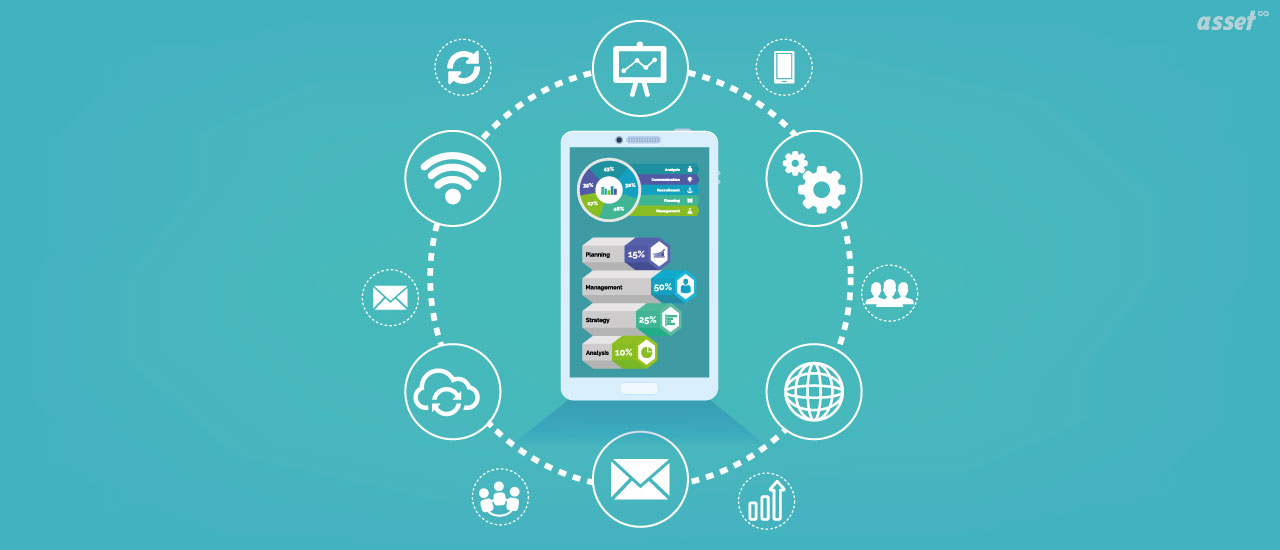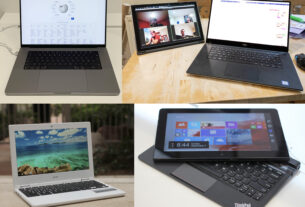Mobile devices like smartphones, tablets, etc. have become an integral part of the business environment. Accept it or not, hybrid work is the new normal with the Bring Your Own Device (BYOD) culture. However, the use of mobile devices for handling business data can’t go unsupervised and uncontrolled.
IT administrators find it challenging to manage multiple devices in a BYOD environment. After all, they have to take care of the devices’ security, compliance, support, and updating capabilities. Here Mobile Device Management or MDM comes into play.
Mobile Device Management allows IT admins to remotely manage and control employees’ mobile devices such as laptops, desktops, smartphones, tablets, or even wearables. The interference of an MDM makes it possible to monitor, provision, update, secure, or even wipe data on these devices using a central console.
Currently, multiple MDM software solutions are available in the market. Let’s learn more about them and find out why businesses require them to be in the first place.
Mobile Device Management: How it Works
So far, you know that Mobile Device Management is a typical tool for IT administrators for controlling and safety purposes. However, the manufacturers of mobile devices and developers of mobile operating systems control what MDMs are capable of changing and whatnot.
Mobile repair Dubai professionals have highlighted that MDMs play an important role in protecting a business’s assets or data. Organisations have to practise mobile device management by applying the following entities:
- The required software
- Security policies
- Processes
Employees can have their own devices enrolled on the MDM program. Or else, the organisation will hand over dedicated workstations to them. No doubt, those mobile devices will have the MDM program (also called an MDM agent) installed. Whereas the MDM server resides on the cloud.
Now, IT administrators set up mobile device management policies via the server’s console. After that, the server applies those policies to the MDM software or agent on the respective device. The agent pushes the policies to the device through the API integrated into the operating system.
Features Exhibited by Mobile Device Management
Right now, multiple MDM tools are available in the market and every one comes with a particular set of features. However, the core functionality of most MDMs is almost the same. The differentiation may arrive due to the enterprise policies.
According to professionals of mobile repair services Dubai, here are some common features of any mobile device management:
- Enrolling the onboarding of new mobile devices and configuring security policies
- IT administrator pre-defining user profiles for faster onboarding
- Incorporating self-service features that allow end users to fix common IT problems like security updates
- Managing, updating, and distributing apps, including removing unwanted ones
- Device tracking and reporting inventory throughout the whole device lifecycle
- App blocklisting and allow listing
- Managing mobile device location through GPS and protecting stolen, lost, or somehow compromised devices
- Restricting device’s camera usage while they are on insecure public Wi-Fi networks
- Enforcing data encryption to protect against malware and additional data compromises
- Integrating devices with mobile threat intelligence or mobile threat defence to restrict malware and other security threats
- IT admins enforcing password management through policies
Why do Businesses Require Mobile Device Management?
Unprotected mobile devices can pose a great threat to enterprises if not handled and managed carefully. Security risks and complications will become unskippable if mobile devices lack efficient management. Now, businesses can experience a scaled and comprehensive solution to control mobile networks.
Here are key reasons why organisations should take mobile device management seriously.
1. Diminishing Security Seams
The goal of mobile device management is to enhance security throughout the organisation. IT administrators can deploy a competent MDM solution on every single mobile device and establish protocols to invoke actions whenever there’s a security threat is sensed.
As you already know MDM solutions are capable of. For example, they can provide user authentication, remotely access sensitive data, update devices, wipe off devices in case of getting lost or stolen, and so on. The latest software updates can keep your mobile devices immune against vulnerabilities or security threats.
It’s an open secret now that smartphones and tablets can attract a vast array of attacks. Thus, mobile device management can address all such concerns by offering cutting-edge and consistent mobile security all along the enterprise network.
2. Enhanced Flexibility and Workflow
With mobile device management, more people get a chance to remotely work without interruptions and security threats. IT managers can swiftly assign tasks through mobile device management agents and organise project teams.
Additionally, an MDM makes it easier to supervise and monitor the progress of numerous different jobs at the same time. Hence, internal operations at the organisation will run more efficiently and smoothly with an MDM solution.
3. Lowering Overall Costs
Reportedly, an appropriately implemented mobile device management can be a cost-effective scope for most organisations. Indeed, mobile device management solutions for BYOD environments are more money-saving compared to the purchase cost of multiple devices and corresponding software.
Besides that, MDM solutions are proven to free up time and resources along with improving productivity. So, consider MDM solutions to decrease the overall cost to your enterprise.
4. Getting Rid of IT Complications
You can imagine how infuriating the manual process of mobile management would be. Over time, the complication level of manually managing every mobile device will only increase with the expansion of the organisation.
So, an MDM tool is the right implementation to simplify such complex monitoring and management tasks at once. In fact, IT professionals can effectively manage a mobile network with an MDM agent and there will be no risk of security vulnerability.
Wrap it up…
Undoubtedly, mobile device management tools are a great way to sustain the efficiency of a mobile network without worrying about security. SOTI MobiControl, IBM MaaS360, Citrix XenMobile, Microsoft Intune, VMWare AirWatch, etc. are some recommended MDM solutions by Mobile Repair dubai for enterprises of every size.
So, start investing in MDM solutions to welcome the future of productivity and security measures in your business.


